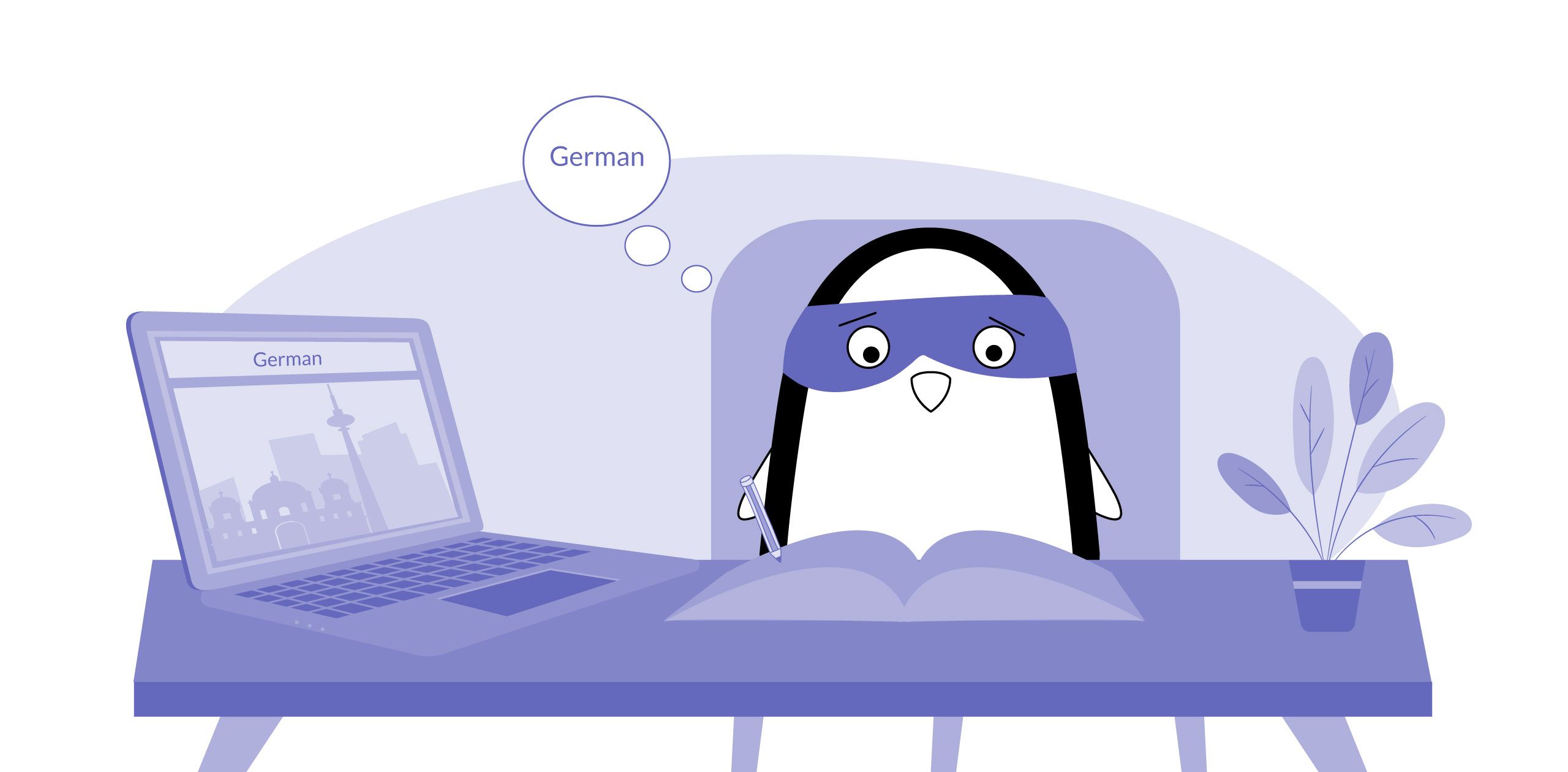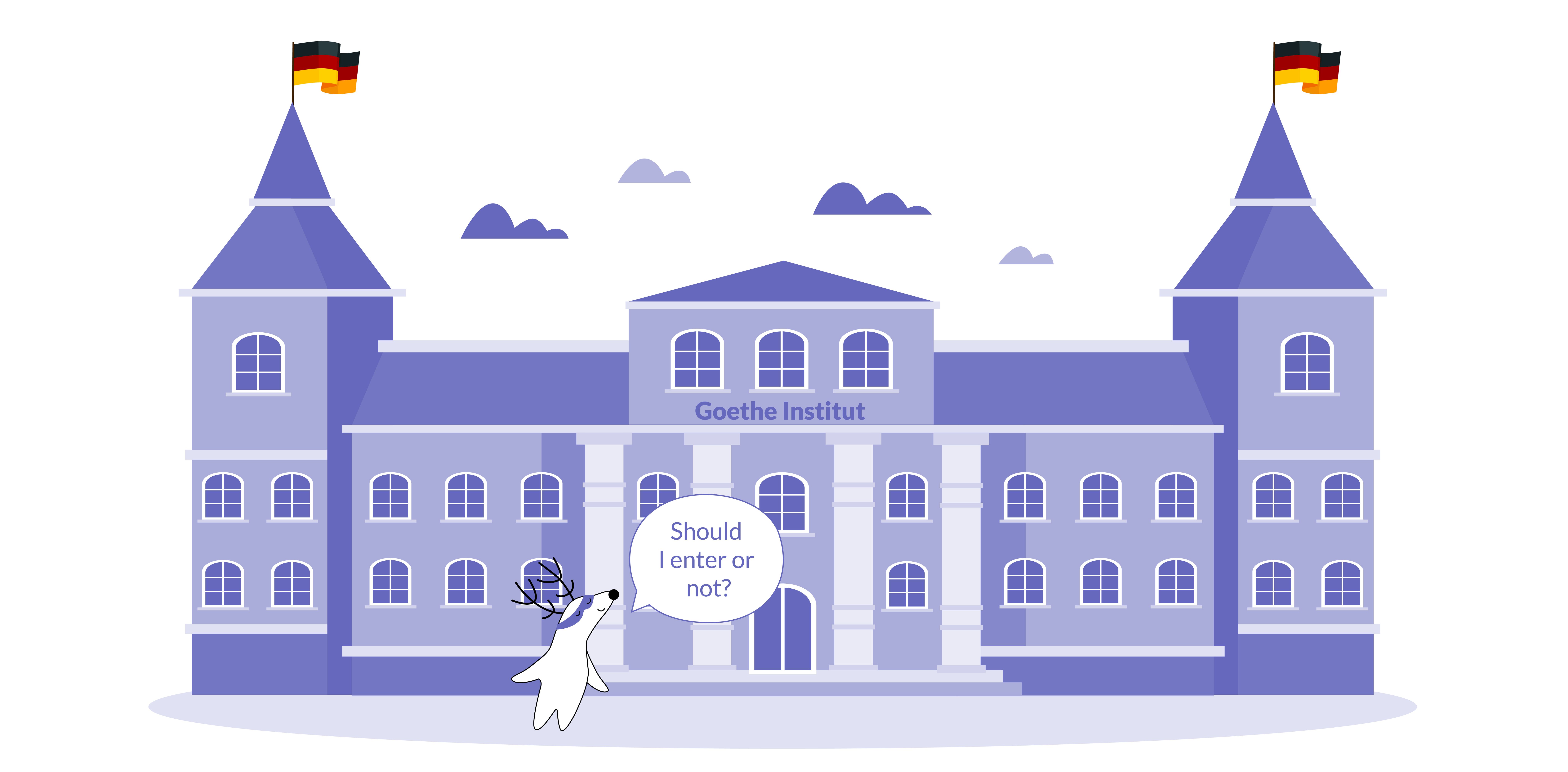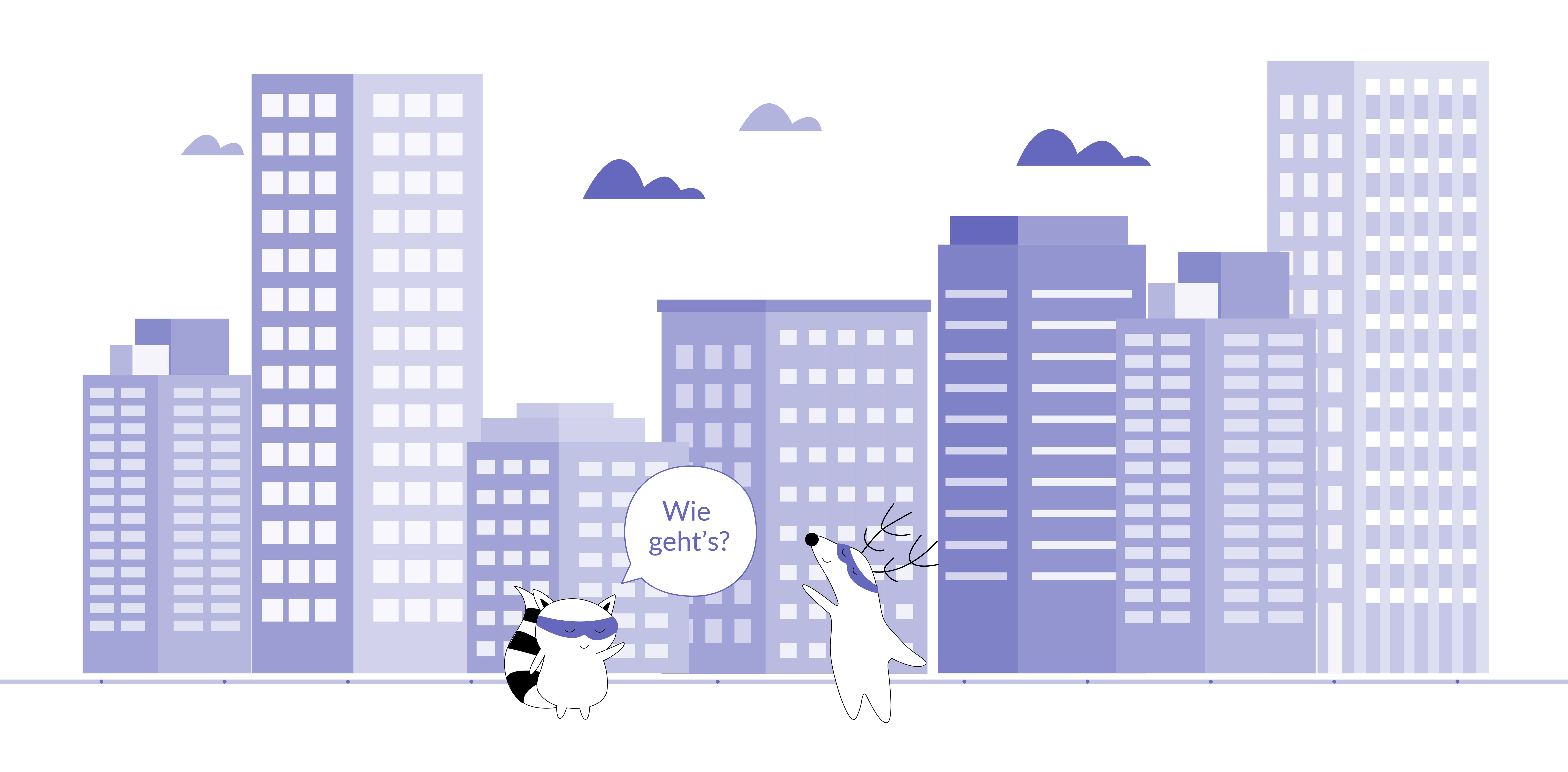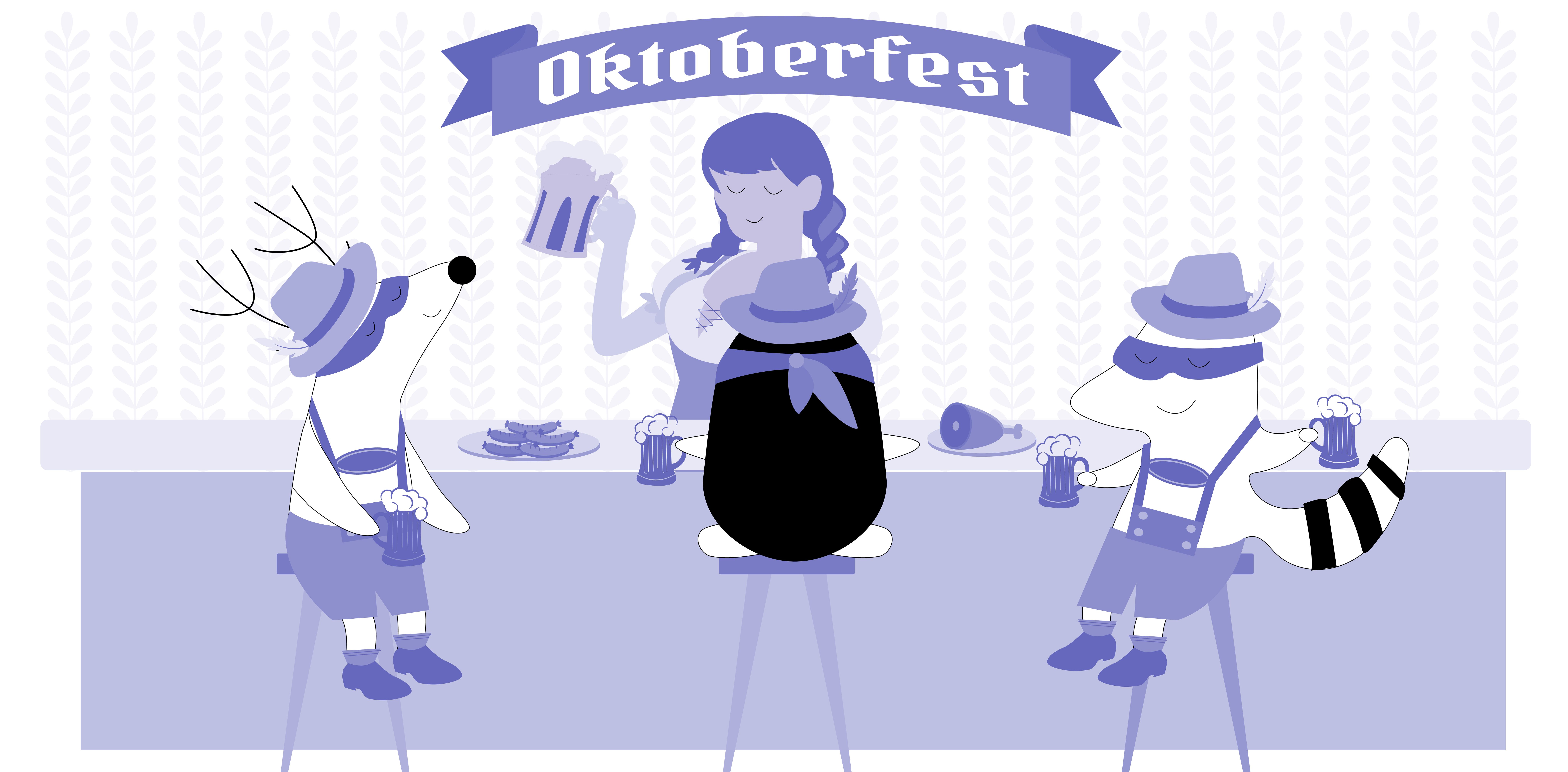
From the frothy head of a freshly pulled pint to the hearty toasts of Prost! echoing throughout beer halls, Germany's beer culture is much more than a daily routine; it's a living, breathing part of the national identity.
Known worldwide for its purity laws and quality brews, Germany's beer scene offers more than 1,300 breweries to choose from, each with its unique flavor profiles, traditional techniques, and centuries-old histories. This is a country where beer is not just a beverage, it's an institution.
Celebrations like Oktoberfest — the world's largest beer festival, held annually in Munich — further underscore the depth of Germany's love affair with malty brews. Here, amidst the intoxicating blend of festive music, lederhosen, dirndls, and giant pretzels, millions of people from around the world unite to celebrate and enjoy the finest German beers.
But, beyond the steins, the songs, and the celebrations, there exists a rich vocabulary and etiquette around beer — a way to toast and say “cheers” like a German local. And, that's exactly what this article will dive into!
So, sit back, grab your favorite brew, and let's immerse ourselves in the fascinating world of German beer culture — and the essential related vocabulary.
Learn German with Langster
Ordering a Beer in Germany
Understanding how to order a beer in German is a crucial skill if you ever find yourself in a traditional German beer hall or a modern bar in Berlin.
Before we move on to toasting in German, this section will guide you through the phrases and etiquette needed to confidently order a beer in German so that you can fully enjoy this essential part of German culture and social life.
Types of Beer You Can Get in Germany
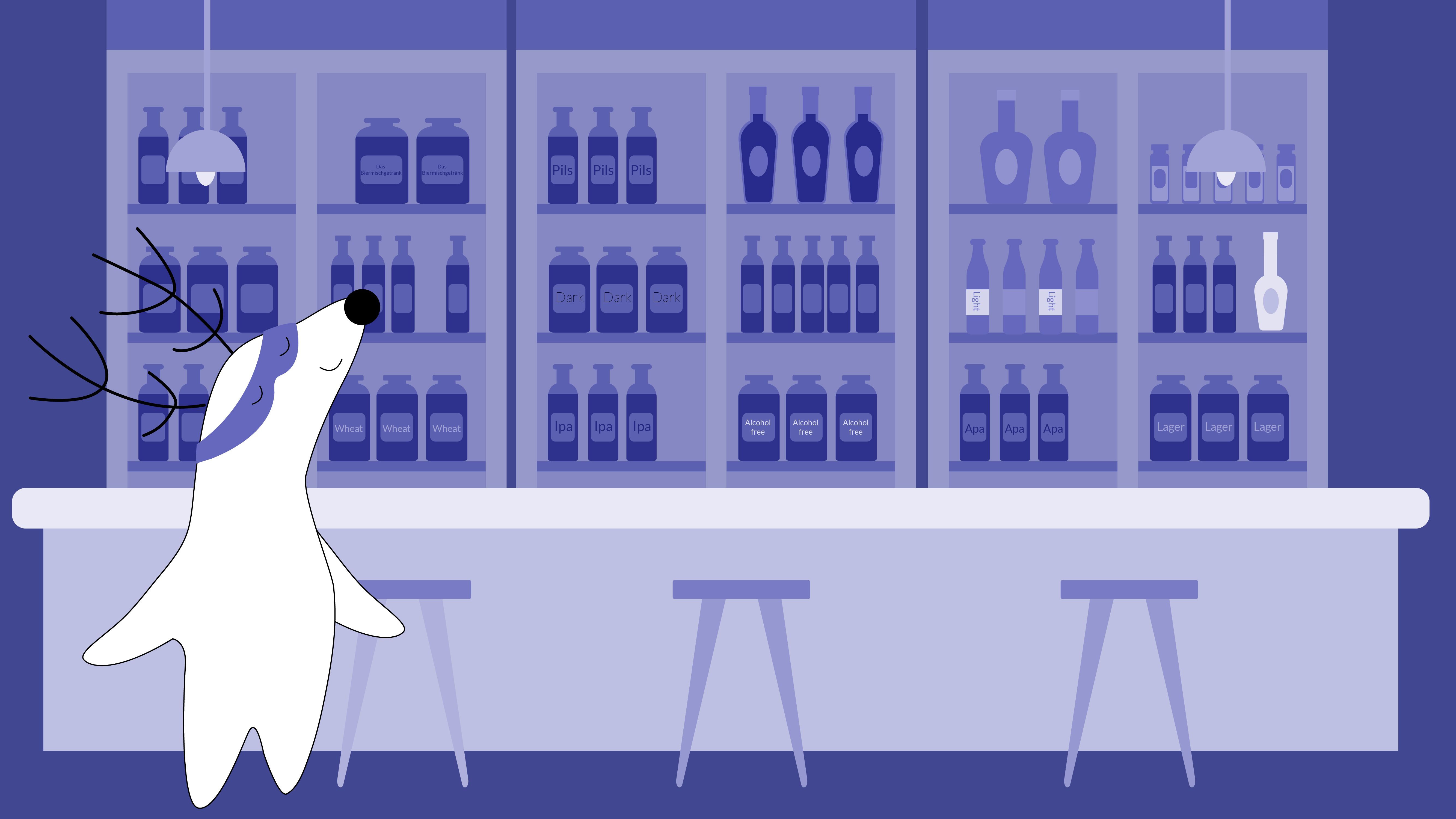
As the country with the third-highest beer consumption per capita, Germany offers a stunning array of beer types to try, each with unique characteristics, taste, and brewing style. From traditional favorites like Helles to modern craft beer varieties, there's a beer to suit every palate.
Here's a handy table to assist you in ordering your preferred type of beer:
| German Name | English Equivalent |
|---|---|
| Das Bier | Beer |
| Helles Bier | Light beer |
| Dunkles Bier, Schwarzbier | Dark beer |
| Das Lager | Lager |
| Das Ale | Ale |
| Helles Ale-Bier | Pale ale |
| Das Porter | Porter |
| Das Rootbeer | Root beer |
| Das Starkbier | Stout, strong beer |
| Das Weißbier | Wheat beer |
| Das Malzbier | Malt beer |
| Pils | Pilsner |
| Das Fassbier | Draft beer |
| Das Craftbier | Craft Beer |
| Alkoholfreies Bier | Non-alcoholic beer |
| Das Biermischgetränk | Shandy |
| German Name | English Equivalent |
|---|---|
| Das Bier | Beer |
| Helles Bier | Light beer |
| Dunkles Bier, Schwarzbier | Dark beer |
| Das Lager | Lager |
| Das Ale | Ale |
| Helles Ale-Bier | Pale ale |
| Das Porter | Porter |
| Das Rootbeer | Root beer |
| Das Starkbier | Stout, strong beer |
| Das Weißbier | Wheat beer |
| Das Malzbier | Malt beer |
| Pils | Pilsner |
| Das Fassbier | Draft beer |
| Das Craftbier | Craft Beer |
| Alkoholfreies Bier | Non-alcoholic beer |
| Das Biermischgetränk | Shandy |
Remember that, in addition to these standard varieties, each region in Germany might have its unique local brews that are well worth a try. So, don't be afraid to venture beyond the familiar and discover the diversity of German beer.
Useful German Adjectives to Describe Beer
These descriptors will help you articulate your preference or talk about the beer you're tasting in a more nuanced manner. Here's a quick list of commonly used German adjectives to describe beer:
| German Adjective | English Translation |
|---|---|
| Kalt | Cold |
| Hopfig | Hoppy |
| Scharf, Kräftig | Sharp |
| Stark | Strong |
| Mild | Mild |
| Säuerlich, Sauer | Sour |
| Bitter | Bitter |
| Hell | Bright |
| Erdig | Earthy |
| Süß | Sweet |
| Fruchtig | Fruity |
| Herb | Dry |
| Malzig | Malty |
| Aromatisch | Flavorful |
| Spritzig | Refreshing |
| Würzig | Spicy |
| German Adjective | English Translation |
|---|---|
| Kalt | Cold |
| Hopfig | Hoppy |
| Scharf, Kräftig | Sharp |
| Stark | Strong |
| Mild | Mild |
| Säuerlich, Sauer | Sour |
| Bitter | Bitter |
| Hell | Bright |
| Erdig | Earthy |
| Süß | Sweet |
| Fruchtig | Fruity |
| Herb | Dry |
| Malzig | Malty |
| Aromatisch | Flavorful |
| Spritzig | Refreshing |
| Würzig | Spicy |
Feel free to experiment with these adjectives and come up with your own unique way of describing your favorite German beer. Not only will this impress your drinking companions, but it will also enhance your overall experience and appreciation of the brews you're trying.
How to Order a Beer in German
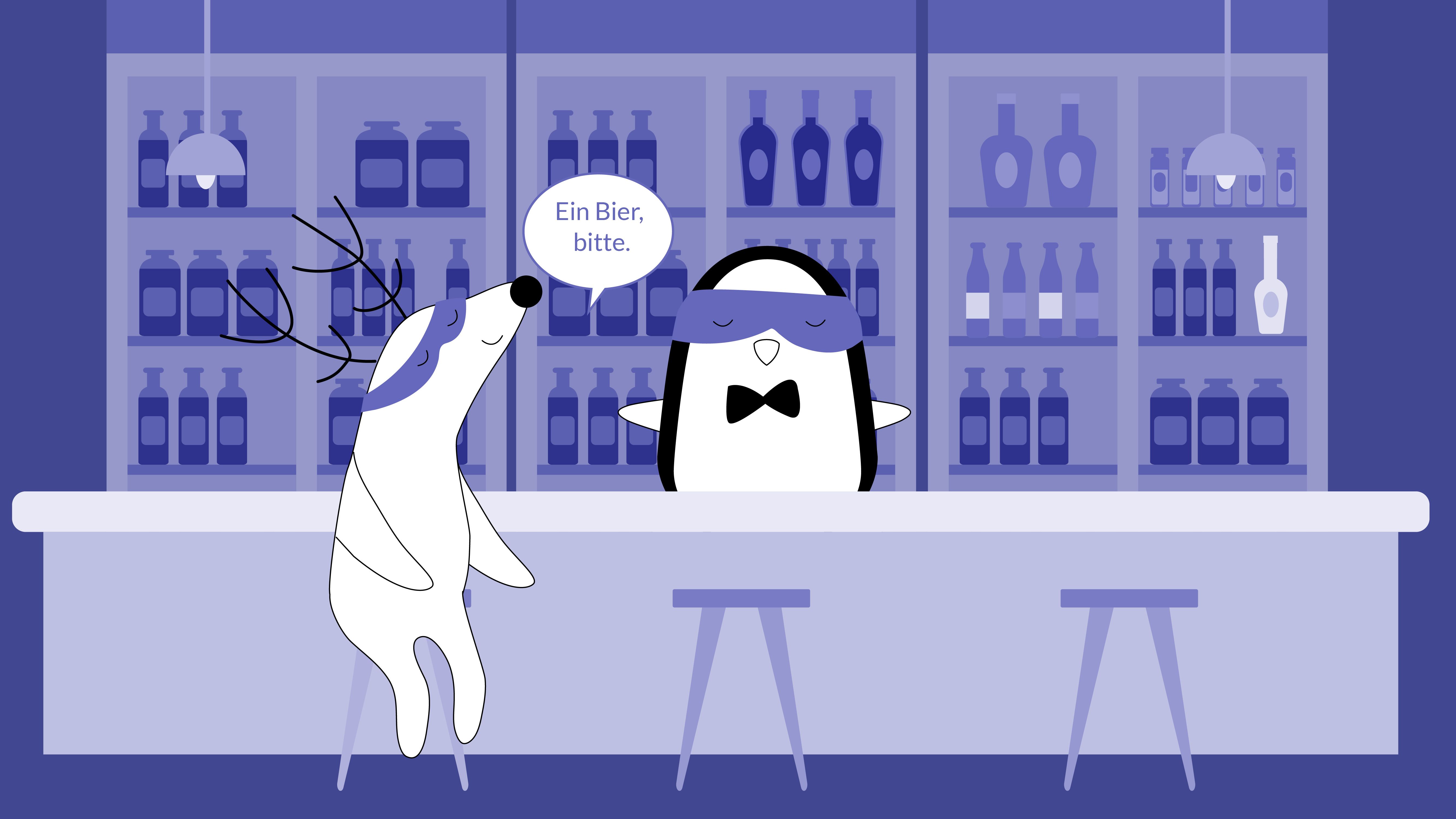
Now that you know the various types of beer available in Germany and have some helpful adjectives to describe them, it's time to put this knowledge into practice by learning how to order yourself a pint in German.
Here are the essential phrases you'll need:
| German Phrase | English Translation |
|---|---|
| Ein Bier, bitte. | One beer, please. |
| Ich hätte gerne ein Bier. | I'd like a beer, please. |
| Ich möchte ein Bier bestellen. | I would like to order a beer. |
| Kann ich bitte ein Bier haben? | Can I please have a beer? |
| Entschuldigung, ich hätte gerne die Getränkekarte. | Excuse me, I'd like the drinks menu. |
| Was für Biersorten habt ihr? | What types of beer do you have? |
| Ist das Bier frisch vom Fass? | Is the beer fresh from the tap? |
| Eine Maß bitte. | A liter mug of beer, please. |
| Ein Krug Bier bitte. | A pitcher of beer, please. |
| German Phrase | English Translation |
|---|---|
| Ein Bier, bitte. | One beer, please. |
| Ich hätte gerne ein Bier. | I'd like a beer, please. |
| Ich möchte ein Bier bestellen. | I would like to order a beer. |
| Kann ich bitte ein Bier haben? | Can I please have a beer? |
| Entschuldigung, ich hätte gerne die Getränkekarte. | Excuse me, I'd like the drinks menu. |
| Was für Biersorten habt ihr? | What types of beer do you have? |
| Ist das Bier frisch vom Fass? | Is the beer fresh from the tap? |
| Eine Maß bitte. | A liter mug of beer, please. |
| Ein Krug Bier bitte. | A pitcher of beer, please. |
Once you've successfully ordered your preferred type of beer, don't forget to Danke to the server.
How to Say ‘Cheers’ in German
In Germany, raising a toast during social gatherings is an integral part of the drinking culture. Here are some common ways to say "cheers" in German:
| German Word | IPA | English Equivalent | Explanation |
|---|---|---|---|
| Prost! | pʀoːst | Cheers! | Standard way of saying “cheers” in Germany. It's informal and used among friends. |
| Zum Wohl! | ˈtsʊm ˈvoːl | To Health! | Literally translates to "to health." It's a more formal way to say "cheers" and can be used in both casual and formal settings. |
| Gesundheit! | ɡəˈzʊnthaɪ̯t | Health! | Primarily used to wish someone good health after they sneeze, it can also be used to toast to good health in some parts of Germany. |
| Broscht! | bʀoʃt | A Swiss German variation of Prost and a more colloquial way to say "cheers." | |
| Ein Prosit! | ain ˈproːzɪt | A toast! | This is often heard at Oktoberfest, where the band leader will call out Ein Prosit, ein Prosit der Gemütlichkeit, meaning "A toast, a toast to coziness," followed by everyone joining in a toast and finishing their drinks. |
| Auf uns! | auf ʊns | To us! | This is a more intimate and celebratory way of saying “cheers.” |
| An die Freundschaft! | an diː ˈfrɔyntʃaft | To friendship! | This phrase is used when toasting with close friends. |
| Zum Wohle der Gemütlichkeit! | ˈtsʊm ˈvoːl deːɐ ɡəˈmyːtlɪçkaɪ̯t | To the well-being of coziness! | Typically used in Bavaria to toast over a hearty meal. |
| Prost Mahlzeit! | pʀoːst ˈmaːlˌt͡saɪ̯t | Cheers! | Used when toasting before or during a meal, and roughly translates to “cheers, enjoy your meal.” |
| German Word | IPA | English Equivalent | Explanation |
|---|---|---|---|
| Prost! | pʀoːst | Cheers! | Standard way of saying “cheers” in Germany. It's informal and used among friends. |
| Zum Wohl! | ˈtsʊm ˈvoːl | To Health! | Literally translates to "to health." It's a more formal way to say "cheers" and can be used in both casual and formal settings. |
| Gesundheit! | ɡəˈzʊnthaɪ̯t | Health! | Primarily used to wish someone good health after they sneeze, it can also be used to toast to good health in some parts of Germany. |
| Broscht! | bʀoʃt | A Swiss German variation of Prost and a more colloquial way to say "cheers." | |
| Ein Prosit! | ain ˈproːzɪt | A toast! | This is often heard at Oktoberfest, where the band leader will call out Ein Prosit, ein Prosit der Gemütlichkeit, meaning "A toast, a toast to coziness," followed by everyone joining in a toast and finishing their drinks. |
| Auf uns! | auf ʊns | To us! | This is a more intimate and celebratory way of saying “cheers.” |
| An die Freundschaft! | an diː ˈfrɔyntʃaft | To friendship! | This phrase is used when toasting with close friends. |
| Zum Wohle der Gemütlichkeit! | ˈtsʊm ˈvoːl deːɐ ɡəˈmyːtlɪçkaɪ̯t | To the well-being of coziness! | Typically used in Bavaria to toast over a hearty meal. |
| Prost Mahlzeit! | pʀoːst ˈmaːlˌt͡saɪ̯t | Cheers! | Used when toasting before or during a meal, and roughly translates to “cheers, enjoy your meal.” |
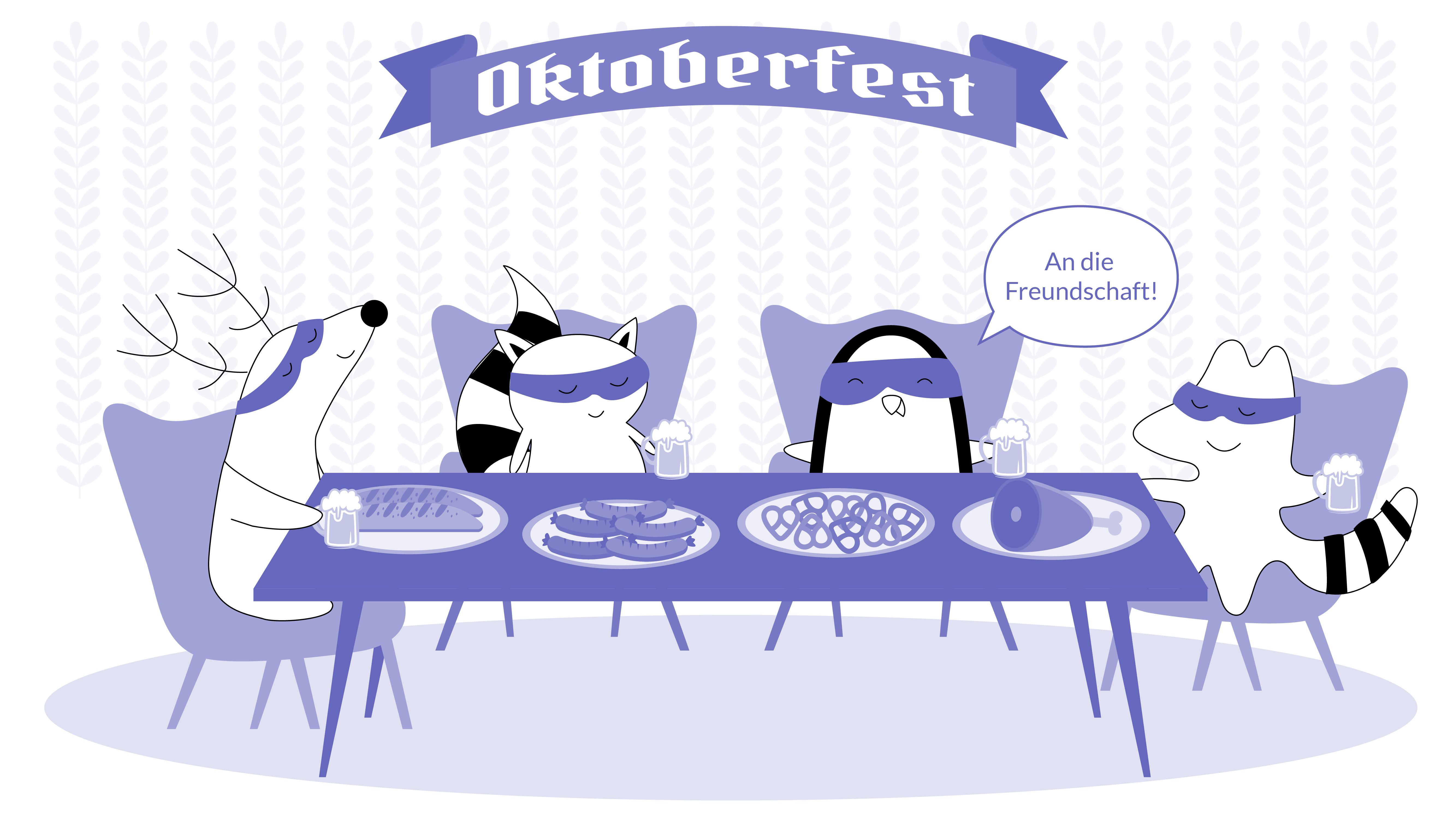
Bonus Phrases You’ll Need at Oktoberfest
Oktoberfest, locally known as Wies’n, is the world's largest beer festival and an important part of Bavarian culture. Originating in Munich, Germany, in the early 1800s, this much-anticipated annual event attracts millions of people from around the globe who come to enjoy copious amounts of beer, traditional German food, folk music, and various attractions.
The name Wies’n comes from Theresienwiese — the fairgrounds where Oktoberfest is held — and is a term of endearment used by the locals. Here’s a quick phrase to impress your German-speaking friends:
German
English
Wie komme ich zur Wies’n?
How do I get to the Wies’n?
This two-week-long festivity, taking place from late September to the first weekend in October, is an unparalleled experience that embodies the spirit of German camaraderie and their deep-rooted love for beer.
Below, you’ll find several handy German phrases that will make your Oktoberfest experience as authentic as possible.
| German Phrase | IPA | Translation |
|---|---|---|
| Ich möchte einen Toast auf (NAME) ausbringen. | ˈɪç ˈmœçtə ˈaɪ̯nən ˈtoːst ˈaʊ̯f ˈaʊsbʀɪŋən | I’d like to propose a toast to (NAME). |
| Lasst euch nicht lumpen, hoch mit dem Humpen! | ˈlast ˈɔɪ̯ç ˈnɪçt ˈlʊmpən ˈhoːx ˈmɪt ˈdeːm ˈhʊmpən | Don't be lazy, raise your tankards high! |
| Wo früher meine Leber war, ist heute eine Minibar. | ˈvoː ˈfʀyːɐ ˈmaɪ̯nə ˈleːbɐ ˈvaːɐ̯ ˈɪst ˈhɔɪ̯tə ˈaɪ̯nə ˈmɪniːbaːɐ̯ | Where my liver once was, there is now a minibar. |
| Eins, zwei, drei! | ˈaɪ̯ns ˈtsvaɪ̯ ˈdraɪ̯ | One, two, three! |
| Oans, zwoa, drei, g’suffa! | Bavarian dialect | One, two, three, drink! |
| Zicke zacke, zicke zacke, hoi, hoi, hoi! | ˈtsɪkə ˈtsakə ˈtsɪkə ˈtsakə hɔi̯ hɔi̯ hɔi̯ | A toast, a toast, and a cozy place! |
| German Phrase | IPA | Translation |
|---|---|---|
| Ich möchte einen Toast auf (NAME) ausbringen. | ˈɪç ˈmœçtə ˈaɪ̯nən ˈtoːst ˈaʊ̯f ˈaʊsbʀɪŋən | I’d like to propose a toast to (NAME). |
| Lasst euch nicht lumpen, hoch mit dem Humpen! | ˈlast ˈɔɪ̯ç ˈnɪçt ˈlʊmpən ˈhoːx ˈmɪt ˈdeːm ˈhʊmpən | Don't be lazy, raise your tankards high! |
| Wo früher meine Leber war, ist heute eine Minibar. | ˈvoː ˈfʀyːɐ ˈmaɪ̯nə ˈleːbɐ ˈvaːɐ̯ ˈɪst ˈhɔɪ̯tə ˈaɪ̯nə ˈmɪniːbaːɐ̯ | Where my liver once was, there is now a minibar. |
| Eins, zwei, drei! | ˈaɪ̯ns ˈtsvaɪ̯ ˈdraɪ̯ | One, two, three! |
| Oans, zwoa, drei, g’suffa! | Bavarian dialect | One, two, three, drink! |
| Zicke zacke, zicke zacke, hoi, hoi, hoi! | ˈtsɪkə ˈtsakə ˈtsɪkə ˈtsakə hɔi̯ hɔi̯ hɔi̯ | A toast, a toast, and a cozy place! |
German Beer Culture
Germany is renowned for its rich beer culture, rooted in centuries-old traditions and laws.
The Reinheitsgebot, or "Beer Purity Law," established in 1516, is a testament to this, allowing only water, barley, and hops in the brewing process. This law, while modified over time, signifies the German dedication to producing high-quality and pure beer.
With over 1,300 breweries and 5,000 different types of beer, Germany boasts the most diverse range of beer styles in the world. The world-famous Oktoberfest in Munich we’ve mentioned above is a yearly testament to this culture, where millions of beer lovers from around the globe gather to celebrate and enjoy German beer.
Embedded in this culture is a sense of camaraderie and Gemütlichkeit — a unique German concept of coziness, comfort, and rapport that is felt when enjoying a beer with friends or family.
To venture deeper into this fascinating culture, we invite you to watch this Deutsche Welle video:
German Drinking Etiquette
While enjoying a cold one in Germany is a relatively laid-back affair, there are a few etiquette rules to keep in mind to avoid any cultural misunderstandings or faux pas.
Here are some do's and don'ts when it comes to drinking beer like a German:
Do's
- Do clink your glass with everyone you're drinking with before taking the first sip.
- Do make eye contact while clinking, and say Prost! or Cheers.
- Do use specific glasses for certain types of beer if available. For example, wheat beer is best enjoyed in a tall, curvy glass, while pilsner goes well with a thin, fluted mug.
- Do say cheers again when taking the last sip and clinking once more before placing your glass down.
Don'ts
- Don't cross your arms while clinking glasses, as this is considered rude and can bring bad luck.
- Don't say Prost! or Cheers with anything other than an alcoholic beverage. Water, juice, or soda are not included in toasting etiquette.
- Don't finish someone else's drink, as this is seen as a sign of disrespect.
- Don't put your glass down until everyone has finished their drink.
By following these simple rules, you'll fit right into the German beer-drinking culture and have an enjoyable experience with friends or newfound acquaintances.
Takeaway
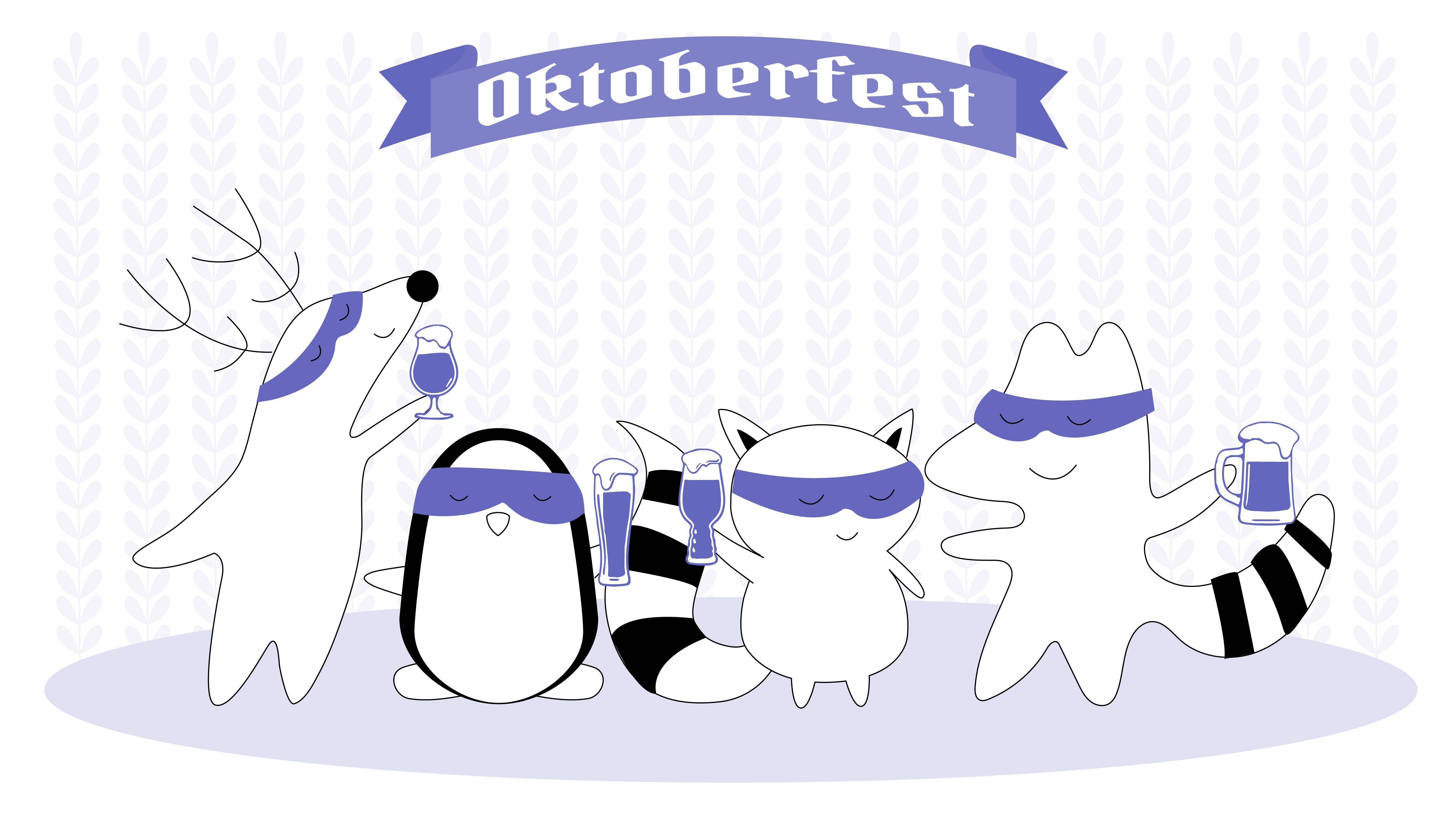
Cheers, or as the Germans say, Prost, is not just a word but a way of life in Germany. From the wide variety of beer types and delicious cuisine to the lively atmosphere and friendly locals, there's no better way to experience German culture than through its beloved beverage.
So, raise your glass, clink it with friends old and new, and enjoy the tasty goodness that is German beer! And, if you’re looking for more hands-on practice of German phrases in context, make sure to download our Langster app, and start learning German with stories today!
Learn German with Langster







